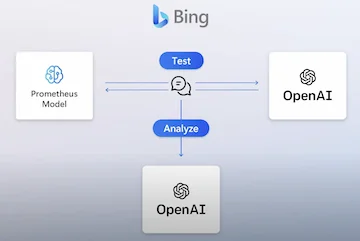One year later: My search habits confirm the rise of AI assistants and the transforming future of SEO
After a year of using AI for everything from road trip planning to product research, my search habits reveal a seismic shift—and a warning for publishers.
I caught myself doing something interesting the other day. I was planning a road trip to Utah and instead of opening Google, I opened ChatGPT. Without even thinking about it. That's when it hit me — my search habits have fundamentally changed over the past year, and I don't think I'm alone.
One year after predicting how generative AI would transform search, my own behavior confirms a dramatic shift away from traditional engines and towards AI assistants. As someone who's spent 18 years in advertising — much of it in search marketing — this is both fascinating and a little unsettling.
(Full context: I wrote before about how Search engine optimization (SEO) might change with the advent of generative AI. In that post, I made an educated guess that generative AI may have the biggest impact on consumer search behavior in two main categories: informational search (medium/low accuracy) and commercial investigation search.)
1. Beyond traditional search engines: A personal shift to Generative AI
The shift has been most obvious for me when my needs are highly specific. I used to spend ages combing through travel blogs and Reddit threads for trip planning. Now? I just tell ChatGPT exactly what I want — trip duration, daily driving limits, what kind of scenery I'm after — and it gives me something I can actually work with.
- In 2023 alone, I planned four road trips across various U.S. states and national parks this way. All AI-planned, all genuinely good :) I do cross-check the finer points (the AI sometimes hallucinates restaurant recommendations, which is annoying), but the level of customization is something Google search never gave me.
Of course, when I need a high degree of accuracy, I still go to the sources directly. I'm not blindly trusting AI — from my experience, it's great at synthesis but still shaky on specifics.
2. Commercial Research in the Era of AI
(A quick note in case you need it: commercial investigation keywords are used when a user is looking to make a purchase but is still in the research phase. They might be comparing products, looking for reviews, or seeking the best place to make their purchase. Examples could include “best DSLR cameras” or “iPhone vs. Samsung”.)
I've noticed something interesting about my own behavior here. For general product comparisons, I'm increasingly asking ChatGPT or Google Bard — they're getting better at surfacing relevant information quickly.
However, for big purchases? I still don't fully trust AI. When I was researching a new laptop recently, I went straight to YouTube reviews and Amazon ratings. I wanted to hear from people who'd actually used the thing for six months. Before committing, I want the full context offered by hundreds of genuine user reviews detailing real-world experience. I think many people feel the same way — AI is great for narrowing options, but human reviews still close the deal.
Turning to publisher business models, what do these shifts in consumer search behavior signal for the future health of the open internet?
3. Generative AI and Content Creation: A Symbiotic Relationship
This is something I think about a lot from my advertising background. Generative AI needs fresh, quality content to be useful — but if it keeps cannibalizing the publishers who create that content, we've got a real problem. It's a bit like eating your seed corn, if you think about it.
The new ChatGPT 4 "only" knows until Apr 2023. While it can search the internet for real-time information, publishers can choose to block OpenAI's crawler using robots.txt or other means. I think we'll see more of this.
And then there are the walled gardens — Instagram, Facebook, WeChat, TikTok. These chatbots can't reach inside those ecosystems. Unless AI model companies (OpenAI, Anthropic, etc.) can strike content deals with these platforms, there will always be queries they can't answer. From my experience in the industry, I doubt those deals will happen easily — too many strategic competitive reasons.
4. SEO's Future in the AI Age
This one keeps me up at night, honestly. I've spent a big chunk of my career in search marketing, and the ground is shifting under all of us. Optimizing for AI models is a completely different game from optimizing for Google's search results — and I don't think anyone has fully figured it out yet, myself included.
What worries me more: if people no longer visit your website directly, you lose the relationship with your readers over time. And from my experience running campaigns, that relationship is everything. Traffic without engagement is just vanity metrics.
5. Early signs emerge of a shifting publisher landscape
I've been watching this closely — sites that were free for years are now testing subscriptions. I get it. Quality content costs real money to produce.
At the same time, I worry about the access problem. Rising paywalls risk limiting the open information that AI systems (and regular people) rely on. Subscription fatigue is real — I've personally hit my limit on how many $10/month newsletters I'm willing to pay for :P
However, quality journalism does require financial investment — from data acquisition to editing, server space to staff salaries. I don't have the answer here, and I'm not sure anyone does yet. Can hybrid models work — a base layer of free access with premium features? What makes people willing to subscribe beyond just cost?
I honestly don't know where this lands. Rather than pretending I have predictions, I'd rather pose these questions for all of us: will proliferating paywalls restrict access to truth? Can publishers find sustainable models that don't lock out everyday readers?
6. Where I Stand (For Now)
I'll be honest — writing this as someone who built a career on search marketing, the changes I'm describing are a bit scary for the industry. The role of SEO, the sustainability of digital publishing, the ethics of how AI consumes content — these aren't abstract questions for me. They affect my day job.
What I keep coming back to is this: the best content has always won, regardless of the distribution mechanism. Blogs beat print. Social beat blogs. AI might beat traditional search. But the underlying need for genuinely useful, human-created content? I don't think that goes away. I might be wrong, but that's where my bet is.
I'd love to hear from you — especially if you work in search, publishing, or content creation. How have your search habits changed over the past year? Have you noticed yourself reaching for ChatGPT instead of Google? And if you're a publisher, how are you thinking about the AI threat? Drop your thoughts below or reach out to me directly.
Cheers,
Chandler




